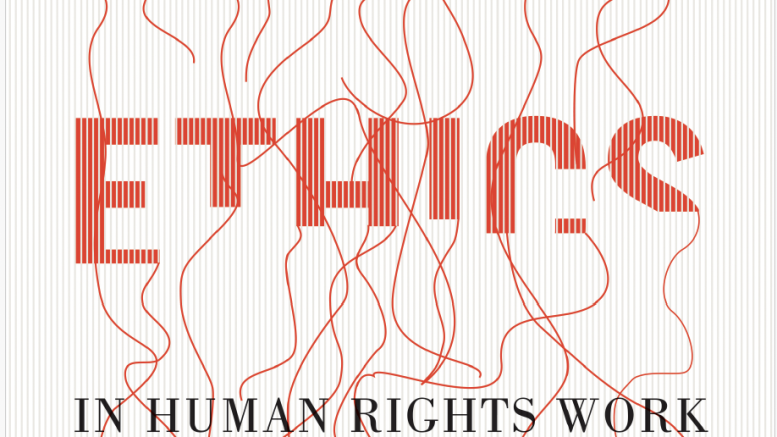Human rights work can be messy. Without having dilemmas neatly organized and presented, few human rights workers speak about the mistakes, missteps and problems that they encounter when working within the practice.
Messy Ethics in Human Rights Work seeks to unpack these dilemmas through reflective writing by contributors with a relationship to the world of human rights work.
U of M anthropology professor Lara Rosenoff Gauvin, along with her fellow editors of Messy Ethics, felt the book should be written in a way that doesn’t appeal just to academics but to a diverse group of people working to progress human rights across disciplines.
In the spirit of open access knowledge, the editors of Messy Ethics worked together to ensure the book was free to read online.
“Knowledge shouldn’t be behind paywalls, because how is that equitable in any shape, way or form?” said Rosenoff Gauvin.
Messy Ethics contains chapters on various human rights topics including migration and asylum seeking, allyship, self-governance and sex work.
Community activist and U of M alumni Claudyne Chevrier’s chapter focuses on the experiences of sex workers in Winnipeg and the important voices of those directly affected by human rights work.
Chevrier was “relieved” to have Messy Ethics as an outlet to reflect on many questions she has faced in her work as a community activist, including “what is the community I’m working with getting out of it?”
In her chapter, Chevrier reflects on being asked to do a talk on the topic of sex work, and the internal conflicts she dealt with speaking as an ally of, but not a member of, the sex work community.
When working with communities, Chevrier makes sure to dismantle the idea of “giving a voice” to the groups affected by human rights violations.
“It’s not about giving a voice, it’s about passing the mic,” said Chevrier.
Chevrier’s chapter further highlights the stigmatization of sex workers in Winnipeg by organizations and politicians, and how it is difficult for sex workers to speak about their own experiences in the city due to the culture around sex work.
Rosenoff Gauvin noted that while “Winnipeg has become a ‘human rights town’ in many ways,” with a community of folks focusing on human rights and social justice, there are also many across the province who have had their rights abused.
An important concept throughout the book is making sure to conduct work that is helpful and supportive to the communities directly affected by the human rights work being done.
Rosenoff Gauvin said the harms that can potentially occur when doing human rights work tend to be overshadowed by the larger human rights issues such work aims to address, but that conversations about those potential harms need to be had.
“If you don’t make space for those more intimate conversations about how to actually do the work in a good way that is respectful, that isn’t contributing to the violence, then I don’t see how the work can be done,” said Rosenoff Gauvin.
Chevrier shares this sentiment, and is hopeful when it comes to the next generation of students working to advance human rights.
“I think there’s so much knowledge and so much energy and desire for social justice and for human rights to be respected within that generation, and I can’t wait to see what happens.”





